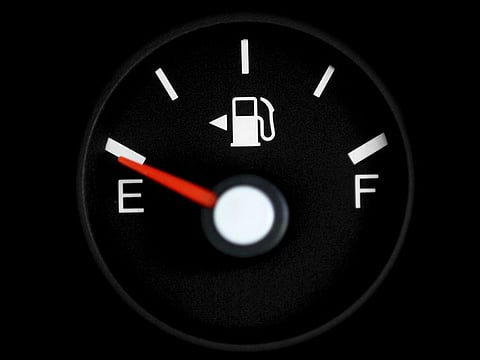5 reasons why driving with an almost empty tank is bad for your vehicle
Trying to maximize your mileage between fuel stops can be detrimental

Stopping at a petrol station and seeing the fuel gage needle in your vehicle hit ‘Full’ brings a real feeling of satisfaction - especially when you have been driving around on ‘Empty’. It is mostly a sense of relief that you made it in time to the pumps without running out and being left stranded on the road. There are tips on how to save fuel such as turning off the engine in a jam - but this one only works if you leave it off for at least a minute. Any shorter than that, and the car will actually use up more fuel to restart then it would otherwise...
There are many people out there who ignore that warning light on the dash when fuel is in very short supply in a bid to eke out every last drop to maximize their mileage. And sure, your vehicle may have a range indicator that can calculate the distance you can travel on the remaining fuel in the fuel tank - but you can’t always trust it as it can be erratic. The numbers aren’t always accurate either so don’t leave it too late.
If you are waiting until you are running on fumes before filling up then this practice can cause serious damage to your vehicle. Wondering how? Read on…
1 - Wearing out the fuel pump
Fuel in your tank acts like insulation and a lubricant for the fuel pump as it flows around it. When there is not enough fuel in your vehicle’s tank, the fuel pump does not get the same level of lubrication as it normally would and if you drive while being low on fuel consistently, then you can damage the fuel pump prematurely by over-stressing it and overheating it. Long-term exposure to air can lead to early deterioration of the fuel pump.
2 - Tank sludge
Fuel often contains many contaminants which can settle in the bottom of the tank which over time turn into sludge. If you run low on fuel, there is a high probability that this sludge will be sucked up by the fuel pump and be carried to the engine. That will cause your injectors and fuel filter to clog up, poor fuel economy and rough engine operation.
3 - Air...
A low fuel tank can also lead to the vehicle pumping air which may also cause issues for your fuel pump and other components that require fuel to function.
4 - You could stall at any second
Your vehicle won’t go anywhere if it doesn’t have any fuel in it. The consequences of running out of fuel are a sudden loss of power to your engine. Imagine if that was to happen on a busy road or the highway. Yes, it would be very dangerous as your engine would cut out and you would lose your power steering and power brakes making controlling your vehicle very difficult.
5 – Stress!
The road can be an anxious and stressful place and matters can be made worse if you start to panic because you are low on fuel. Driving in this state of heightened tension could lead to an accident so make sure you have some peace of mind by ensuring you have at least half a tank of fuel in your car.
Sign up for the Daily Briefing
Get the latest news and updates straight to your inbox


